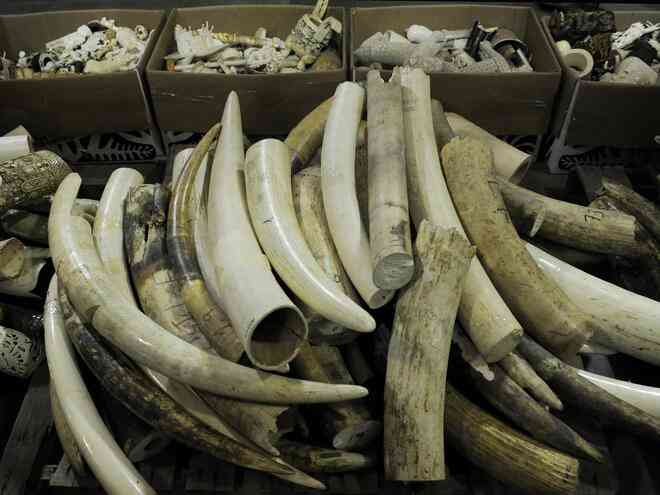Zimbabwe is grappling with a significant issue concerning a large amount of ivory stored in its vaults. According to the Zimbabwe Parks and Wildlife Management Authority (Zimparks), there are over 130 tonnes of ivory worth more than $600 million.
This situation has arisen due to a global ban on the trade of ivory, which was imposed in 1989 by the Convention on International Trade in Endangered Species (CITES).
The ban has led to ongoing discussions in Zimbabwe, which has one of the largest elephant populations in the world. Zimparks Director General Fulton Mangwanya recently spoke about the issue at an event in Chizarira National Park.
He expressed his frustration, saying, “The vault is now full of ivory. I don’t know what to do with it.” He pointed out that Zimbabwe cannot benefit economically from this ivory because of the trade restrictions.
Zimbabwe is home to more than 80,000 elephants, which exceeds the capacity of its national parks. For example, Hwange National Park is struggling with 45,000 to 55,000 elephants in an area designed for only 15,000.
This overpopulation leads to conflicts between humans and wildlife and puts pressure on the environment.
ALSO READ: Nees Aims to Convince Musona to Rejoin Warriors After Retirement
To address these challenges, Zimbabwean authorities have decided to cull 200 elephants. They plan to distribute the meat to local communities to help with food shortages. However, this decision has faced strong criticism from conservation groups.
Mangwanya stated, “As a sovereign state, we have to do what is good for our nation. We will not watch our people die of hunger.”
Zimbabwe last culled elephants in 1988, but the growing elephant population and the ivory stockpile have intensified calls for change. Despite global opposition to lifting the ivory ban, Zimbabwe argues that using its wildlife resources sustainably is crucial for the country’s economic growth and the well-being of its people.
The decision to cull elephants marks a significant shift in wildlife management policy, as authorities may consider culling more than the planned 200 if necessary. The debate over the ivory trade and elephant management will likely continue as Zimbabwe tries to balance conservation with economic needs.

For comments, Feedback and Opinions do get in touch with our editor on WhatsApp: +44 7949 297606.
